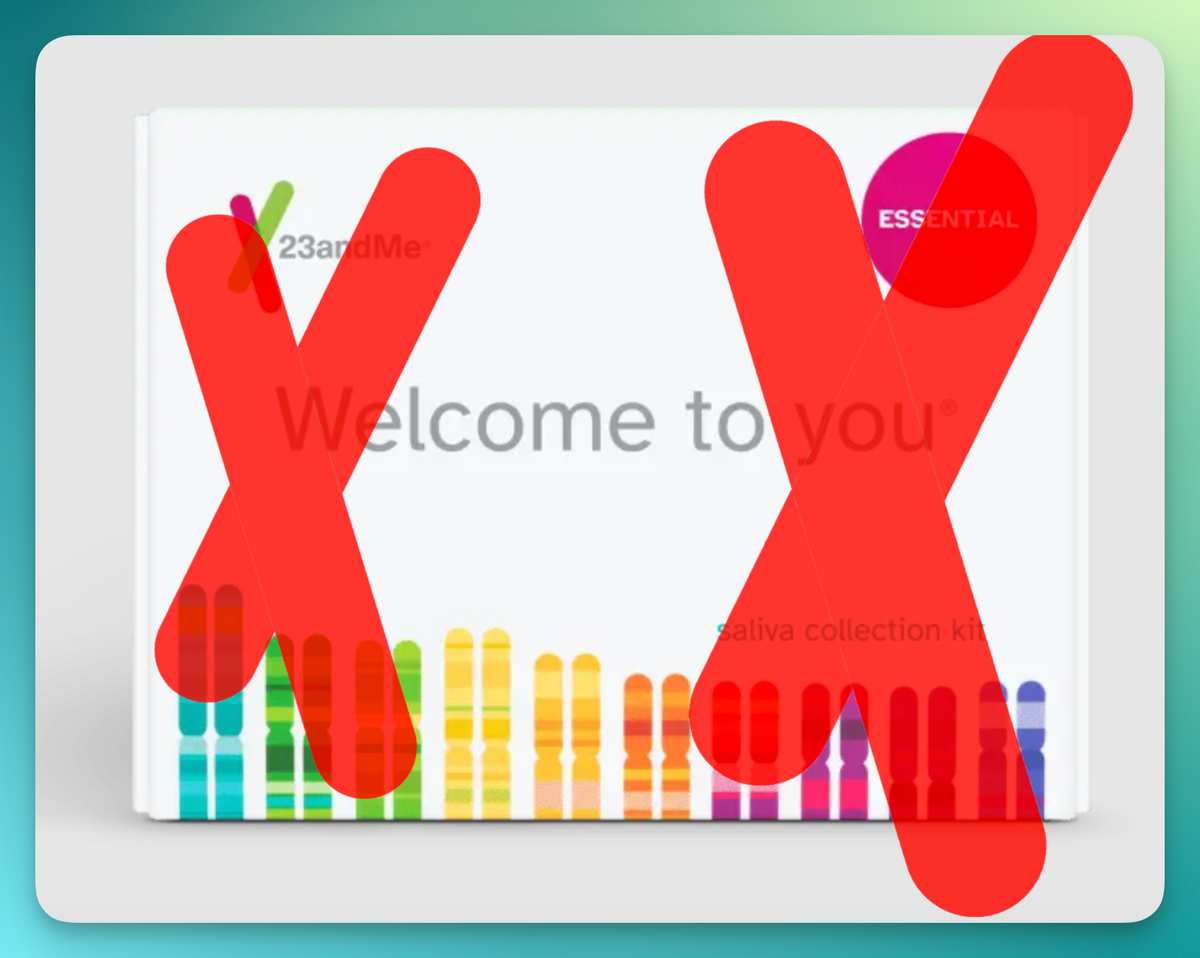The creator of an open source genetic database is shutting it down and deleting all of its data because he has come to believe that its existence is dangerous with “a rise in far-right and other authoritarian governments” in the United States and elsewhere.
“The largest use case for DTC genetic data was not biomedical research or research in big pharma,” Bastian Greshake Tzovaras, the founder of OpenSNP, wrote in a blog post. “Instead, the transformative impact of the data came to fruition among law enforcement agencies, who have put the genealogical properties of genetic data to use.”
OpenSNP has collected roughly 7,500 genomes over the last 14 years, primarily by allowing people to voluntarily submit their own genetic information they have downloaded from 23andMe. With the bankruptcy of 23andMe, increased interest in genetic data by law enforcement, and the return of Donald Trump and rise of authoritarian governments worldwide, Greshake Tzovaras told 404 Media he no longer believes it is ethical to run the database.
“I’ve been thinking about it since 23andMe was on the verge of bankruptcy and been really considering it since the U.S. election. It definitely is really bad over there [in the United States],” Greshake Tzovaras told 404 Media. “I am quite relieved to have made the decision and come to a conclusion. It’s been weighing on my mind for a long time.”
Greshake Tzovaras said that he is proud of the OpenSNP project, but that, in a world where scientific data is being censored and deleted and where the Trump administration has focused on criminalizing immigrants and trans people, he now believes that the most responsible thing to do is to delete the data and shut down the project.

“Most people in OpenSNP may not be at particular risk right now, but there are people from vulnerable populations in here as well,” Greshake Tzovaras said. “Thinking about gender representation, minorities, sexual orientation—23andMe has been working on the whole ‘gay gene’ thing, it’s conceivable that this would at some point in the future become an issue.”
In his blog post, Greshake Tzovaras says that he is particularly concerned about the rise of DNA phenotyping, which is a dubious process in which DNA “portraits” of potential suspects are generated based on a DNA sample; he called the practice “unreliable nonsense,” and said that a startup had once approached OpenSNP to help them create a DNA phenotyping product to sell to law enforcement. "That's something we don't want to see in the world," he said.
“Across the globe there is a rise in far-right and other authoritarian governments. While they are cracking down on free and open societies, they are also dedicated to replacing scientific thought and reasoning with pseudoscience across disciplines,” Greshake Tzovaras wrote. “The risk/benefit calculus of providing free & open access to individual genetic data in 2025 is very different compared to 14 years ago. And so, sunsetting openSNP – along with deleting the data stored within it – feels like it is the most responsible act of stewardship for these data today.”
Greshake Tzovaras said he understands that it may seem ironic to delete scientific data during a time when the Trump administration is itself deleting scientific data from the internet. But he says he believes it’s better to put the safety of people first.
“The interesting thing to me is there are data preservation efforts in the U.S. because the government is deleting scientific data that they don’t like. This is approaching that same problem from a different direction,” he added. “We need to protect the people in this database. I am supportive of preserving scientific data and knowledge, but the data comes second—the people come first. We prefer deleting the data.”
Greshake Tzovaras says that when he started OpenSNP 14 years ago, he believed that having an open source genetic database would lead to medical breakthroughs and would help scientists and academics do research. OpenSNP has been used for various scientific papers, most notably to show that an earlier paper about chronic fatigue syndrome pulled from 23andMe data could not be replicated and was based on erroneous science.
“At a time when genetic data was locked into the commercial siloes of ‘direct-to-consumer’ (DTC) genetic testing companies–and only made accessible to the pharma companies that could afford buying access to it–openSNP should open up access to everyone,” he wrote in the blog post announcing the closure of OpenSNP. “Regardless of financial means and institutional status or credentials, it should provide free access to the data. And equally important: It would give the individual the choice to contribute to this open data resource, instead of having researchers or companies broker the access.”
He said he has come to believe over time that, while there remains promise in genetic research for new drugs, disease prediction and prevention, and personalized medicine, the idea that OpenSNP and genetic databases in general would lead to widespread better outcomes for people was “in retrospect naive.”
“This ambition came from a (in retrospect naïve) data-centric belief that genetic data would be a key driver for improving human health and medicine,” he wrote. “In 2025, my view on that is a lot more sober (and bleaker): Today it seems clear to me that the biggest impact on improving health–even in the rich, allegedly ‘developed’ nations–would come from providing food security and access to stable housing. And not from trying to find genetic confounders of common diseases that are a lot more rooted in those environmental & societal factors.”
Greshake Tzovaras told 404 Media that there have been “very important and useful findings” from genetic research, but that many countries are still failing at the basics: “That’s not to dismiss genetic data as useless, but we have spent I don’t know how many billions of dollars, and the health outcome improvements are minor if you compare them to improving housing and access to nutrition,” he said. “We are really lacking at the basics still.”



